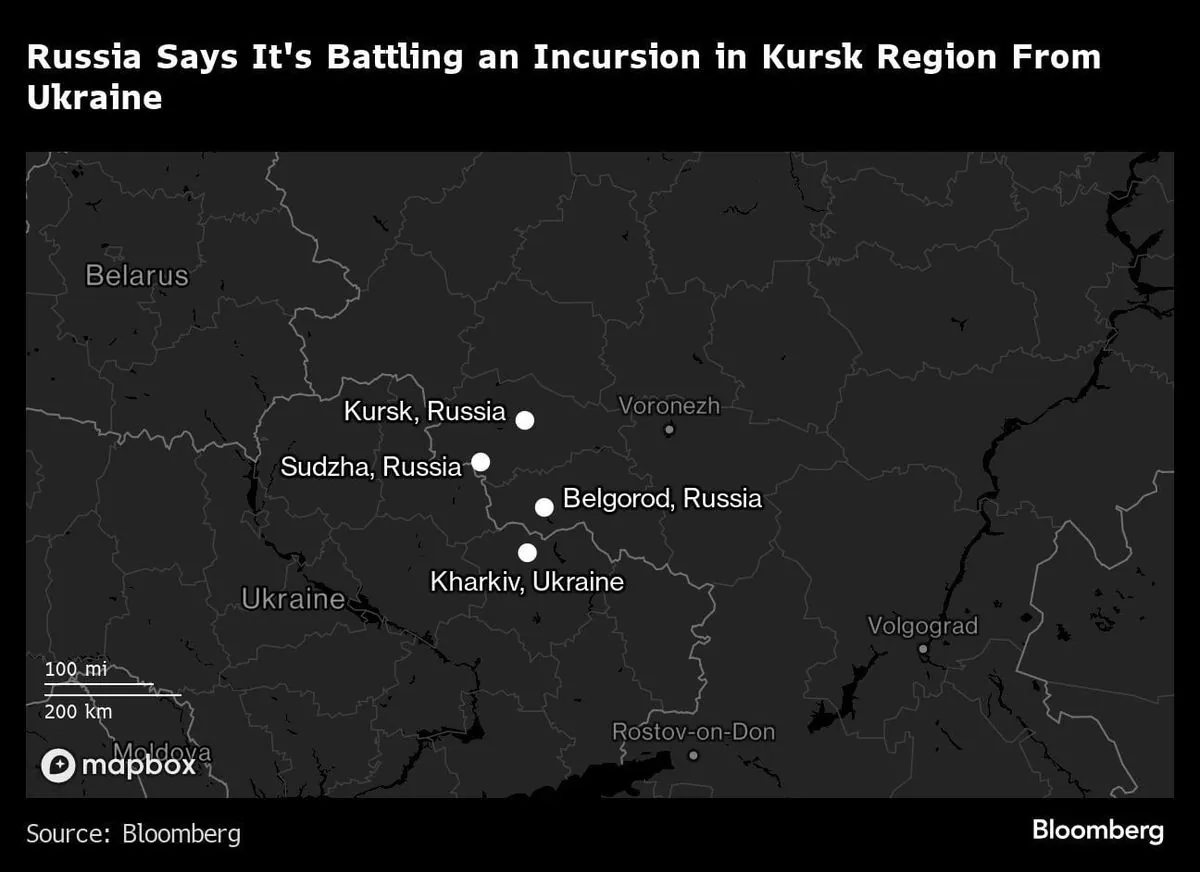In a significant development in the ongoing conflict between Ukraine and Russia, Oleksandr Syrskyi, Ukraine's top military commander, has reported that Ukrainian forces now control approximately 1,000 square kilometers of territory in Russia's Kursk region. This announcement marks Ukraine's most substantial cross-border operation since the full-scale war began in February 2022.
The incursion, which commenced seven days ago, has reportedly left Russian forces struggling to repel the Ukrainian advance. Alexei Smirnov, the acting governor of Kursk region, confirmed that Ukraine now controls 28 settlements within an area extending about 12 kilometers deep and 40 kilometers wide into Russian territory.
In response to these developments, Ukrainian President Volodymyr Zelenskiy has ordered the preparation of a "humanitarian plan" for the affected area. Additionally, he has instructed the defense ministry and diplomatic corps to compile a list of "necessary actions" required to secure permission from Western allies for the use of long-range weapons in strikes against Russian targets.
The Kursk region, located in western Russia bordering Ukraine, covers an area of 29,997 square kilometers and is home to approximately 1.1 million people. Known for its rich black earth and significant iron ore deposits, the region plays a crucial role in Russia's agricultural and mining sectors. The ongoing conflict has brought renewed attention to this historically significant area, which was the site of a major tank battle during World War II in 1943.
Ukraine's Defense Minister, Rustem Umerov, has urged France to lift the ban on Western weapons strikes on military targets within Russia. This request underscores Ukraine's desire to expand its military capabilities and potentially shift the dynamics of the conflict.
As the situation unfolds, the international community closely watches the developments in the Kursk region. The area's strategic importance, coupled with its proximity to the Ukrainian border, makes it a critical focal point in the ongoing war. The presence of the Kursk Nuclear Power Plant in the region adds another layer of complexity to the situation, highlighting the potential risks associated with military operations in the area.
The current incursion into Kursk represents a significant escalation in the conflict, which has now lasted for almost two and a half years. As Ukraine seeks to gain strategic advantages, the international community faces the challenge of balancing support for Ukraine's territorial integrity with concerns about further escalation of the conflict.
"We continue to conduct an offensive operation in the Kursk region. Currently, we control about 1,000 square kilometers of the territory of the Russian Federation."
As the situation continues to evolve, the world watches closely, aware of the potential implications for regional stability and international relations. The coming days and weeks will likely prove crucial in determining the trajectory of this latest development in the ongoing Ukraine-Russia conflict.
